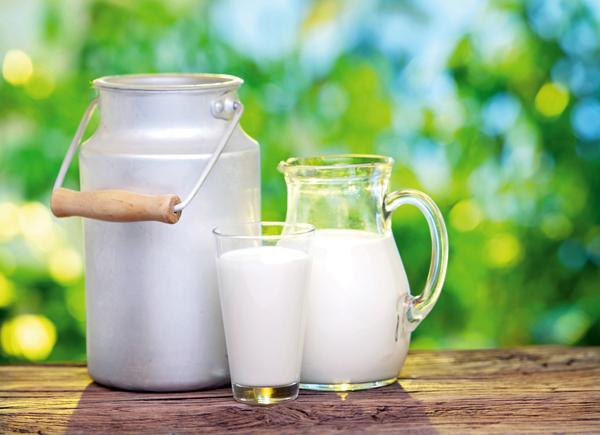You are here
‘Milk production sufficient to cover domestic consumption’
By JT - Sep 14,2020 - Last updated at Sep 14,2020

Photo courtesy of protothema.gr
AMMAN — The recent heatwave has contributed in reducing milk production by 20 per cent, President of the Association of Al Dhuleil Dairy Cattle Association Ali Ghabayen said on Monday.
The Kingdom’s milk production, with some 60,000 dairy cows, covers the need of the domestic market, he said.
There are 256 licensed farms which produce milk for nearly 80 factories, and 500 workshops that transform raw milk to consumer products, notably cheese and other dairy products, he said in a statement cited by the Jordan News Agency, Petra.
Head of a dairy cattle cooperative Laith Al Hajj said the price of fresh milk ranges from JD0.35 to JD0.45, adding that the sector had proved its “readiness” during the COVID-19 pandemic.
The Ministry of Agriculture has suspended cattle imports since 2018, as part of a policy adopted to protect the local product and alleviate losses sustained by the sector.
The Amman Chamber of Industry (ACI) on Sunday called for allowing cattle imports, citing the necessity of enhancing the Kingdom’s production of raw cow milk, pointing out that Kingdom’s production of fresh milk has dropped from 900 tonnes a day to 700 tonnes since the beginning of this year, marking a 20 per cent decline, citing the increase in the rate of dairy cattle abortion, as well as the low fertility in the dairy industry.
The ACI called on the authorities to allow the imports of cows in a regulated manner, at a maximum of 2,000 cows to maintain the balance in the market.
“Cattle farms are growing by an annual rate of 15 per cent”, Hajj added.
“The Kingdom’s production of milk is expected to reach 1,100 tonnes a day by the beginning of 2021”, he said, adding that the issue of dairy cattle abortions being discussed does not go in line with the growth figures recorded in the sector.
Marwan Sawalha, president of a milk marketing company, said that “milk production in Jordan declined temporarily during the heat wave”. He noted that the production of cow milk amounts to about 1,000 tonnes per day, while sheep milk reach about 350 tonnes, which covers the need of the local market, rejecting the need to import cattle.
Related Articles
AMMAN — The Amman Chamber of Industry (ACI) on Sunday called for allowing cattle imports, citing the necessity of enhancing the Kingdom’s pr
The Cabinet on Sunday endorsed the mandating reasons for the draft renewable energy law and submitted it to the Legislation and Opinion Bureau.
AMMAN — Lab tests “proved” that Jordanian agricultural produce destined for export is “fit for human consumption”, Jordan Food and Drug Admi












